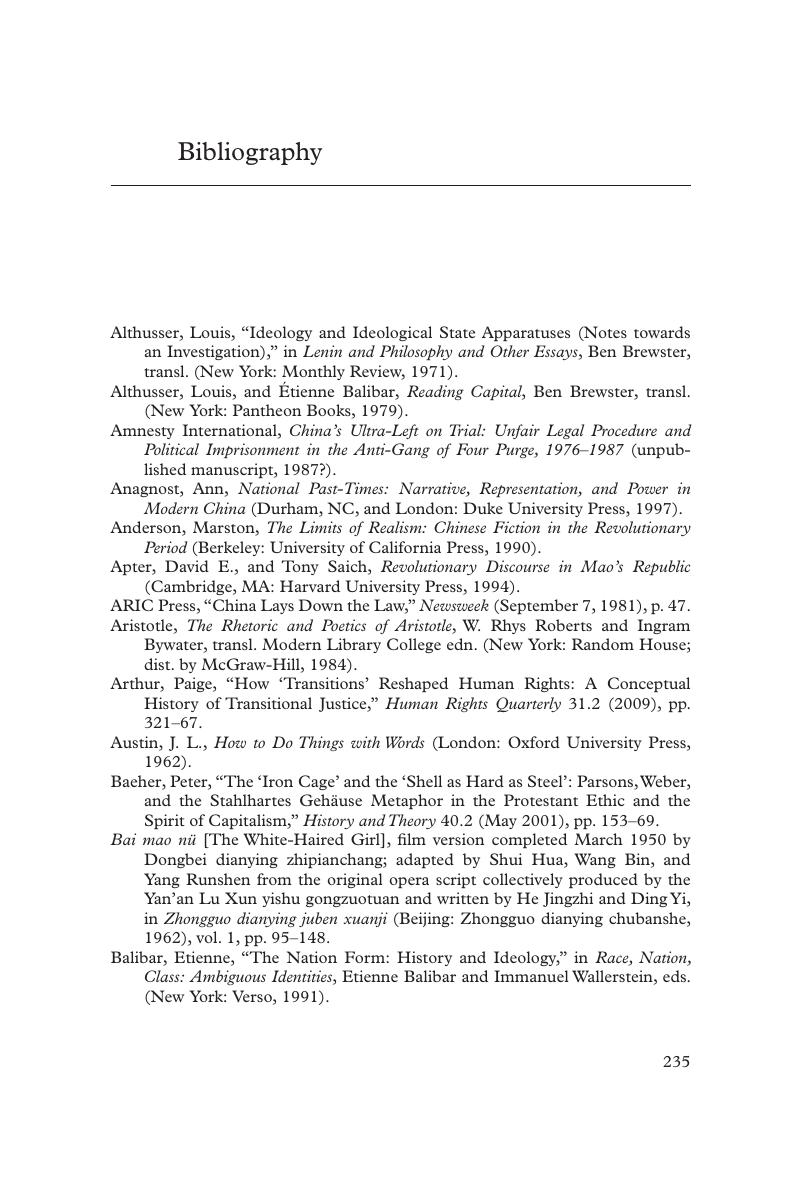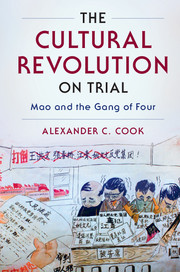Book contents
- The Cultural Revolution on Trial
- Studies of the Weatherhead East Asian Institute, Columbia University
- The Cultural Revolution on Trial
- Copyright page
- Contents
- Figures
- Acknowledgments
- Abbreviations
- Glossary of Key Terms
- Introduction
- 1 Indictment
- 2 Monsters
- 3 Testimony
- 4 Emotions
- 5 Verdict
- 6 Vanity
- Conclusion
- Bibliography
- Index
- Series page
- References
Bibliography
Published online by Cambridge University Press: 17 November 2016
- The Cultural Revolution on Trial
- Studies of the Weatherhead East Asian Institute, Columbia University
- The Cultural Revolution on Trial
- Copyright page
- Contents
- Figures
- Acknowledgments
- Abbreviations
- Glossary of Key Terms
- Introduction
- 1 Indictment
- 2 Monsters
- 3 Testimony
- 4 Emotions
- 5 Verdict
- 6 Vanity
- Conclusion
- Bibliography
- Index
- Series page
- References
Summary

- Type
- Chapter
- Information
- The Cultural Revolution on TrialMao and the Gang of Four, pp. 235 - 270Publisher: Cambridge University PressPrint publication year: 2016



